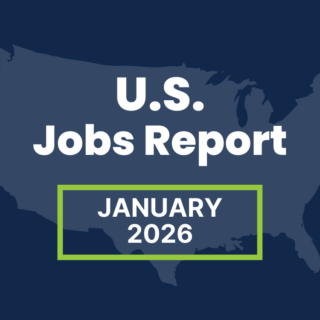Every talent acquisition leader knows social media for recruitment is crucial. The data from our recent research report, The Employer Brand Reality Check, is impossible to ignore: 86% of job seekers say a company’s social media presence influences their decision to apply. With numbers like that, most organizations have established some form of social media presence for employer branding.
So why aren’t you seeing results?
The answer is uncomfortable but critical: most companies are fundamentally misunderstanding what social media for recruitment actually requires. They’re treating Instagram, LinkedIn and TikTok like digital bulletin boards—places to post job openings and share company news. Meanwhile, competitors who truly understand these platforms are building engaged communities, shaping candidate perceptions and attracting top talent before positions even open.
The gap between social media’s potential and how it’s being used in talent acquisition has never been wider. And that gap represents both your biggest challenge and your greatest opportunity.
The Authenticity Crisis in Social Media for Recruitment
Here’s a sobering data point: nearly half (47%) of candidates report that employee-related content from companies is only somewhat engaging—or worse. Even more telling, 7% of candidates say they never encountered employee-focused content during their last job search.
This isn’t a content volume problem. It’s an authenticity problem.
Today’s candidates, particularly Gen Z professionals, have developed what can only be described as a supernatural ability to detect inauthentic content. They’ve grown up with unprecedented access to information and have witnessed climate change, economic uncertainty and corporate scandals throughout their formative years. The result? They’re sophisticated content consumers with highly calibrated authenticity radar.
When content feels staged, overly polished or like it has a hidden agenda, they immediately dismiss it as corporate propaganda.
Beyond the “We’re Hiring” Post
The most common mistake organizations make is treating social media like a digital job board. They post open positions, maybe share the occasional company milestone, and wonder why engagement remains flat.
Here’s what they’re missing: modern candidates don’t go to social media to search for open jobs. They go to understand what it’s actually like to work at the organization. They’re researching culture and trying to envision themselves as part of your community.
This requires a fundamental shift in how you approach social media for recruitment. Instead of broadcasting opportunities, you need to showcase your people: what daily life actually looks like, how your culture manifests in real situations and the meaningful ways employees contribute beyond their technical skills.
The organizations succeeding at social media for recruitment understand that their most powerful brand ambassadors are current employees. But here’s the crucial distinction: this doesn’t mean pressuring employees to engage with company content or creating incentivized employee advocacy programs. Such approaches typically backfire by creating obviously inauthentic interactions.
The best employee engagement is organic. It happens when you create content that team members actually want to share because they’re genuinely proud of their work, excited about company initiatives or inspired by your content.
The Power of Community Management
Creating great content is only half the battle. How you engage with your audience matters just as much—perhaps more.
Modern audiences have zero patience for generic responses, obvious sales tactics or corporate-speak. They’re drawn to unfiltered interactions that feel like genuine human connection. When a brand successfully inserts itself into trending conversations or cultural moments without feeling forced, it stops being perceived as a corporate entity and starts being seen as a relatable community member.
This shift in perception is transformative for employer branding. A company that interacts authentically online signals to potential employees that the organization values creativity, humor, individuality and genuine human connection.
Give your social media managers permission and encouragement to inject humor, personality and human responses into posts and comments. Empower them to respond in real-time rather than routing everything through approval processes that kill momentum. Train them to recognize opportunities for authentic engagement rather than defaulting to corporate-approved responses.
The Choice Ahead
Social media for recruitment isn’t getting any simpler. Platforms continue evolving, candidate expectations keep rising and the authenticity bar keeps climbing. The organizations that will attract top talent in the coming years are those that recognize social media as a relationship-building medium requiring genuine engagement, authentic storytelling and consistent value creation.
Success doesn’t happen overnight. It requires patience, consistency and willingness to learn from both successes and failures. But the rewards, a stronger employer brand, deeper candidate relationships and improved recruitment outcomes, justify the investment.
The choice facing talent acquisition leaders is clear: embrace social media authentically or risk being left behind by competitors who understand how to connect with modern talent.
Ready to Transform Your Social Media for Recruitment Strategy?
This article only scratches the surface of what’s possible when you approach social media for recruitment strategically. For a comprehensive deep-dive including platform-specific tactics, content creation frameworks, community management strategies and measurement approaches that drive real results, download our complete guide: Social Media for Talent Acquisition: Building Your Employer Brand in the Digital Age.



